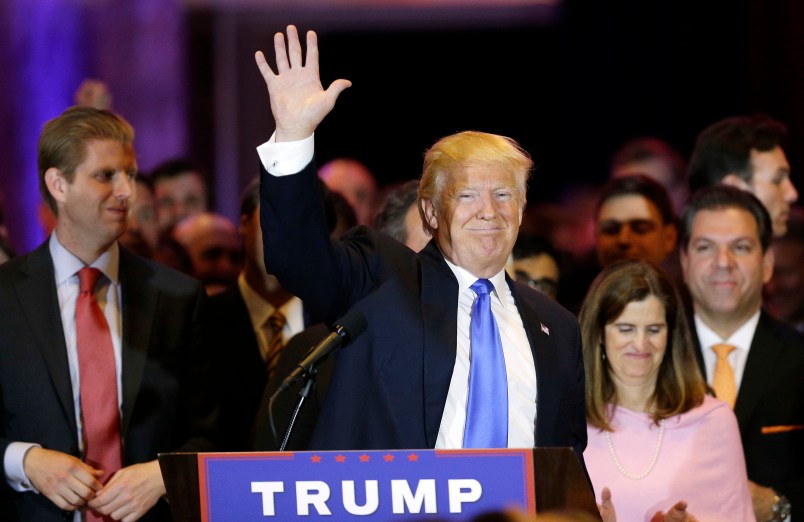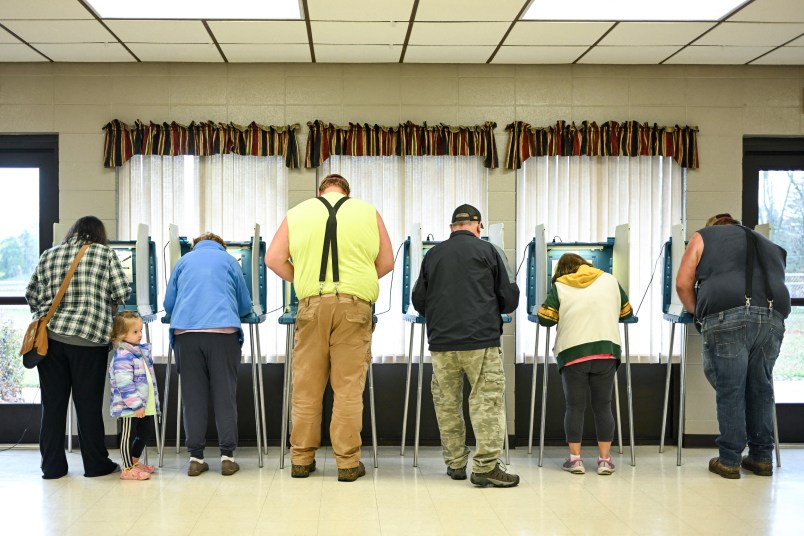I think it’s now reasonable to look toward a general election contest between Donald Trump and Hillary Clinton. I have two thoughts. One of the key voting blocs that has gone Democratic over the last fifty years is professionals. It’s a census category and after the November election, there will be surveys that will allow us to chart their vote, but in the meantime, you can get a rough estimate by looking at voters with advanced degrees. These are not the same as voters with the highest income. They make up about a fifth of the electorate nationally and close to a quarter or more in states like Maryland, Oregon, New Jersey, and Connecticut.
Obama won these voters over Romney by 55 to 42 percent in 2012. If you look at the Republican primary results this year, they are the one group that Trump does not do well among. In Pennsylvania yesterday, Trump got only 38 percent of these voters. Kasich got 32 percent and Cruz 25 percent. And they made up 20 percent of the electorate. (By comparison, Trump got 70 percent of the voters who had no more than a high school diploma.) In Michigan, another swing state in November, Trump got only 23 percent of these voters and Kasich got 37 percent.
In a contest between Clinton and Trump, this group may flee the Republican party en masse. There is almost nothing that Trump is saying that will appeal to them. I would expect something like 60-40 or 62-38 percent margins. And that could make it very difficult for Trump in many swing states. And it could also hurt down-ballot Republicans in states like Pennsylvania, New Hampshire or Illinois where there will be competitive senate races.
My second thought is in the opposite vein. When the pundits on television comment on Trump’s speeches, they always focus on the outrageous statements he makes about women or immigrants or Muslims. Tonight it was about his saying that Hillary Clinton would only get five percent of the vote if she were a man. That’s fine. But when I hear Trump, he often begins by talking about American corporations that are moving jobs to Mexico or overseas. Tonight, he talked about Carrier moving 1400 jobs from Indianapolis to Mexico and promised that if he is president, he will save these jobs.
Clinton, it seems to me, is preparing to run a campaign based on some version of identity politics. I take her theme of inclusion to imply that. She could very well win the election on that basis, but I wouldn’t underestimate the extent to which Trump’s focus on jobs and trade and runaway shops – echoed incidentally by Bernie Sanders – is going to be important to voters. Not, perhaps, the post-grads I described above, but certainly the working class voters that Democrats need to attract to be a viable majority party in America.








